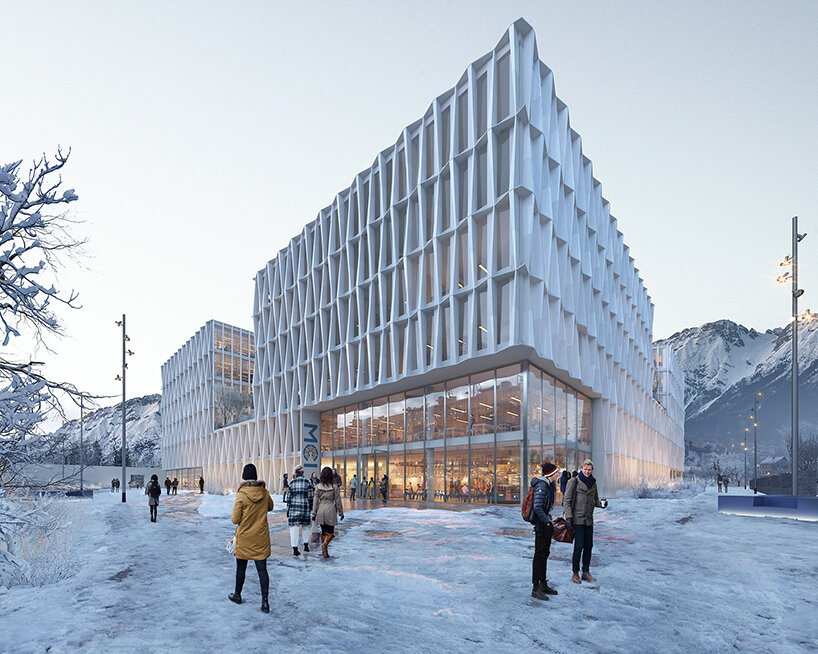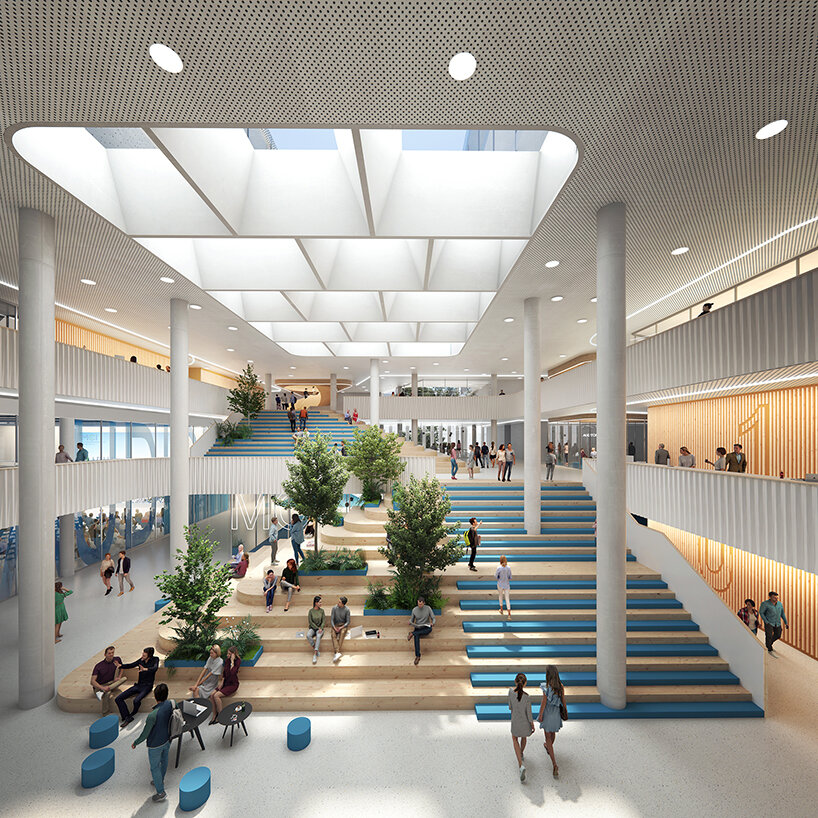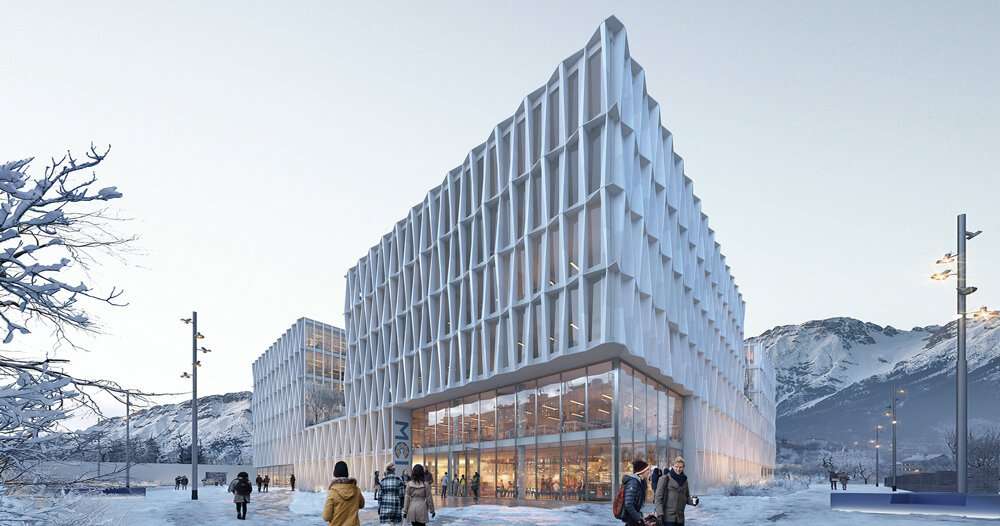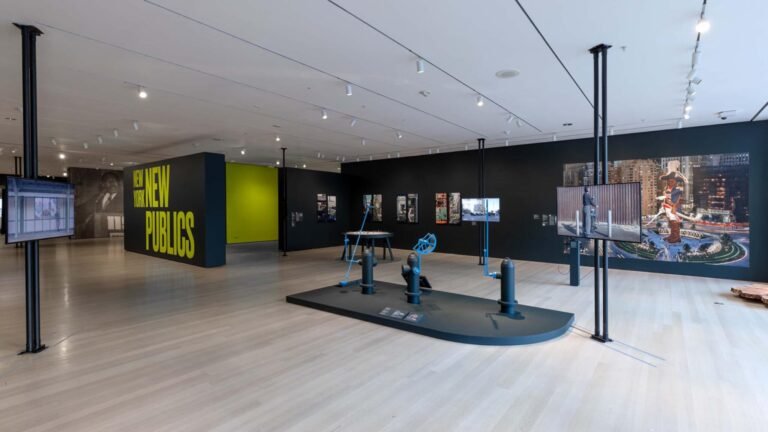henning larsen designs alpine college campus within the coronary heart of innsbruck
a new alpine campus
henning larsen’s new building for a management center innsbruck unites a disparate campus community in a world-class learning environment. after a two-stage competition and dialogue process, henning larsen has been named the designer of the new campus building for management center innsbruck (MCI). the new 35,000 square meter building located on the edge of the innsbruck city center will be henning larsen’s first project in austria.
construction is expected to start in the autumn of 2023 with move-in expected for early 2025.
 images © henning larsen
images © henning larsen
the winning team at henning larsen
andreas schulting, managing director of the munich office of henning larsen (see more here), comments on its innsbruck university campus: ‘we are extremely pleased that we were able to win the competition for the new MCI campus with our design. it stands for openness, identity, communication, and design excellence. we will bring our expertise in university construction from more than 60 years to this project and develop it further together with MCI‘
the competition jury, in their unanimous selection of the project, gave particular attention to the ‘ideal urban development of the new campus as a lighthouse project between the historic hofgarten, the university of social sciences and the new security center.’

the innsbruck surroundings
since its founding in 1995, MCI quickly outgrew its central innsbruck campus; the university’s many faculties today are scattered throughout innsbruck. the new structure, located next to the SoWi university and the innsbrucker hofgarten, will craft a unified campus for MCI for the first time in the school’s history.
bordered by the city to the south and east and by the historical hofgarten to the north and west (and the alps all around), the building is designed to have no back or front. multi-story entries are carved into each façade to break the scale of the building in relation to its surroundings. these pockets are, in turn, planted with gardens to match the identity of their neighbor — the mountain-facing north entry is lush with alpine flowers while the southern city facing entry is an urban terrace.



